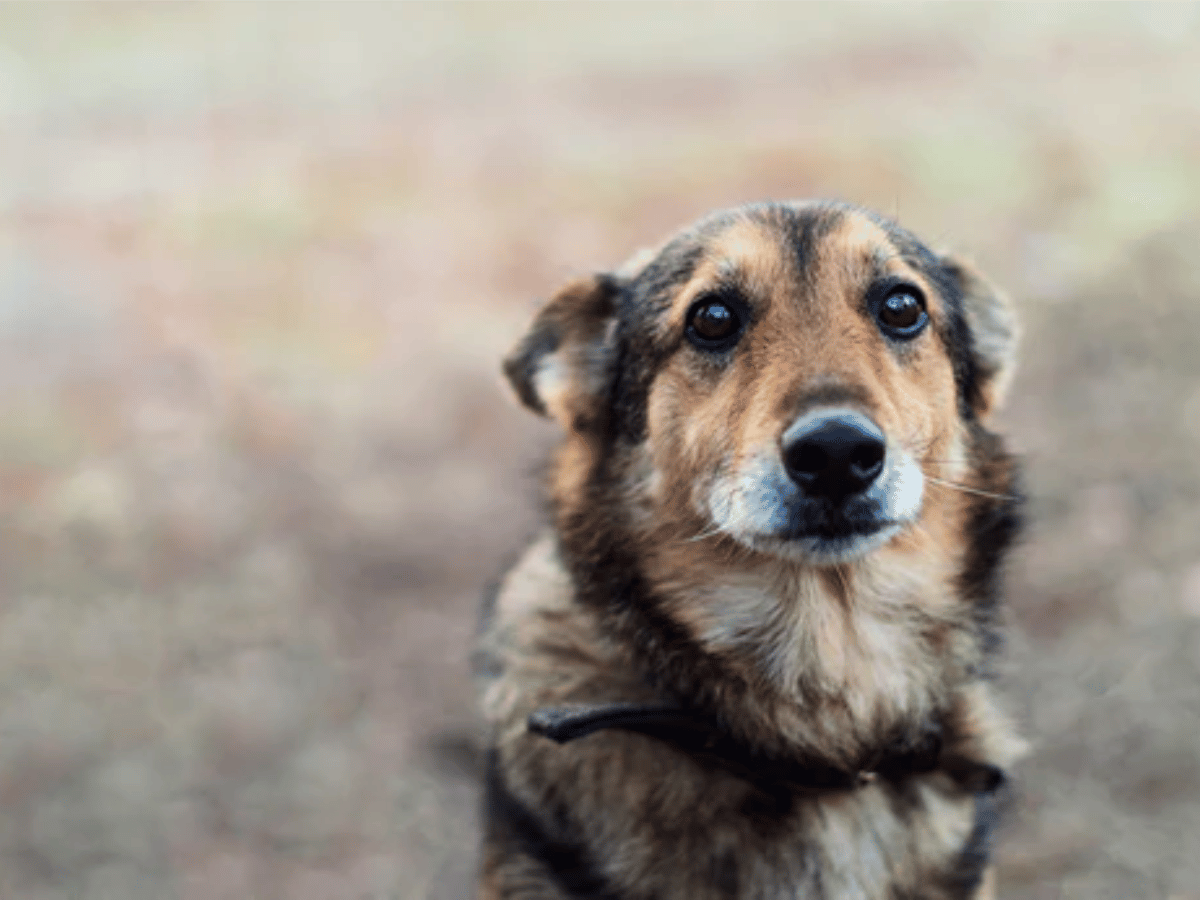
My dog has diarrhea? What can I give him? 2025
Diarrhea in dogs is undoubtedly one of the most common manifestations of many diseases and conditions.
Sometimes also called "gastro," diarrhea in dogs is not a disease in itself but rather a symptom. It is therefore important to first find the cause in order to treat it appropriately.
- Click to learn more: 👉 IntestAnimo D is designed to improve stool quality in cases of DIARRHEA. 🐶
While this symptom can be a sign of a serious condition, it can also be a minor one. However, diarrhea shouldn't be taken lightly. Even if it's just a minor digestive upset, it can lead to dehydration if not treated promptly.
My dog has diarrhea, what should I do?
In this article, in addition to learning the probable causes of your dog's diarrhea, you will also know how to react if your dog suffers from it.
Is there a natural cure or treatment for diarrhea in dogs? What should you give a dog with diarrhea? When should you see a veterinarian? You'll find out everything you need to know to relieve your companion's diarrhea!
Why does my dog have diarrhea?
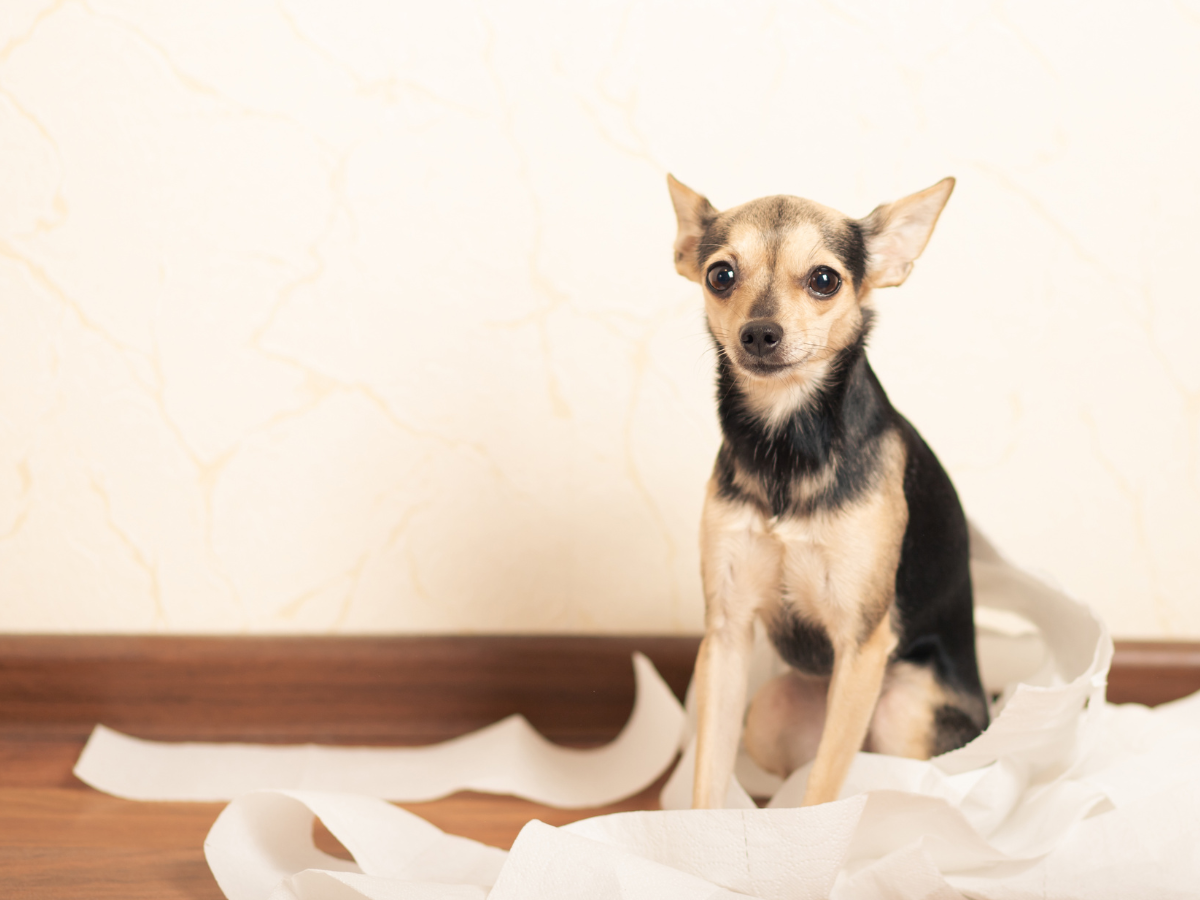
Diarrhea in dogs can be caused by many factors ranging from diet to infection, and determining the exact cause can sometimes be complex.
Here are 12 possible causes of diarrhea in dogs:
- Transitioning too quickly between two diets : A good transition between two types of food should be done gradually over a period of about 10 days. A faster transition could upset your pet's digestive system and cause diarrhea.
- Dietary Indiscretion : If your dog is given too many treats in one day or table food that he is not used to, he could suffer from diarrhea.
- Poisoning : Many products and foods can be toxic to dogs and cause diarrhea if ingested. A visit to the veterinarian is essential if your dog becomes poisoned.
- Parasitic Infection : If your dog is infected with worms or a protozoa (e.g., Giardia), he will likely suffer from diarrhea. These intruders create inflammation in the digestive tract. He will need anti-parasitic treatment to resolve this problem.
- Food intolerance : Just like some humans, dogs can suffer from food intolerances. We often hear about gluten intolerance, for example, which is also present in some dogs.
- Allergies : Similarly, food allergies can cause diarrhea in your furry friend. This will sometimes be accompanied by itching. Your veterinarian will likely suggest trying a new diet containing a different protein.
-
Foreign body ingestion : Diarrhea caused by swallowing a foreign body must be treated very quickly. It will usually be very watery and sometimes bloody, and may be accompanied by lethargy and vomiting.
Swallowing a foreign object can cause a blockage in your dog's intestines and can be devastating. This is a fairly common problem, as many dogs like to eat anything they can find.
I witnessed a Bernese Mountain Dog undergoing surgery just last week as part of my job. The vet removed the flaps of blanket stuck in the poor dog's intestines. Following this questionable snack, he suffered from diarrhea and was lethargic. He had a narrow escape!
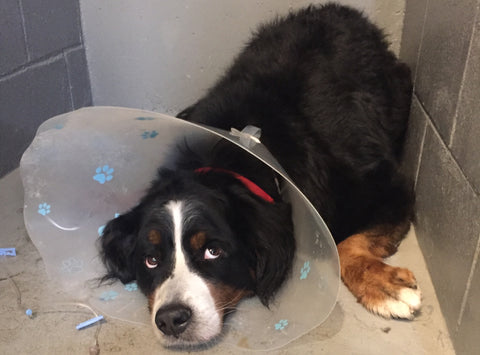
- Viral or bacterial infection : Just as we can get gastroenteritis (“gastro” for short), dogs can also get the same kind of illness. In this case, a bacteria or virus causes diarrhea and sometimes also vomiting and lethargy.
- Cancer : Cancer that affects any part of the digestive tract can cause diarrhea. This is less common, but still possible.
- Antibiotics : Ironically, medication can cause diarrhea. Antibiotics, in particular, can upset the digestive tract. If your pooch has a sensitive stomach, your veterinarian may recommend adding probiotics to their antibiotic regimen to protect against such symptoms.
-
Chronic inflammatory bowel disease : Certain dog breeds are predisposed to developing this condition. It is characterized by persistent diarrhea that appears to have no cause. The digestive system then becomes colonized with inflammatory cells that disrupt its proper functioning.
Besides, other illnesses can cause diarrhea in dogs, this is just one example. Loose stools can be a symptom of liver, kidney, or even pancreatic disease.
- Stress : Anxiety is also a cause of diarrhea. In such a situation, it's important to first identify what's making your dog nervous. Then you can help him better manage his anxiety to help him return to normal bowel movements.
Are puppies more likely to suffer from diarrhea?
Yes, puppies are indeed more likely to suffer from diarrhea than adult dogs for several reasons.
Because their immune systems are less developed, they are more vulnerable to infections and parasites that can cause gastrointestinal problems.
Additionally, changes in their diet or stress related to a new environment can also cause diarrhea.
What should I do if my dog has diarrhea?
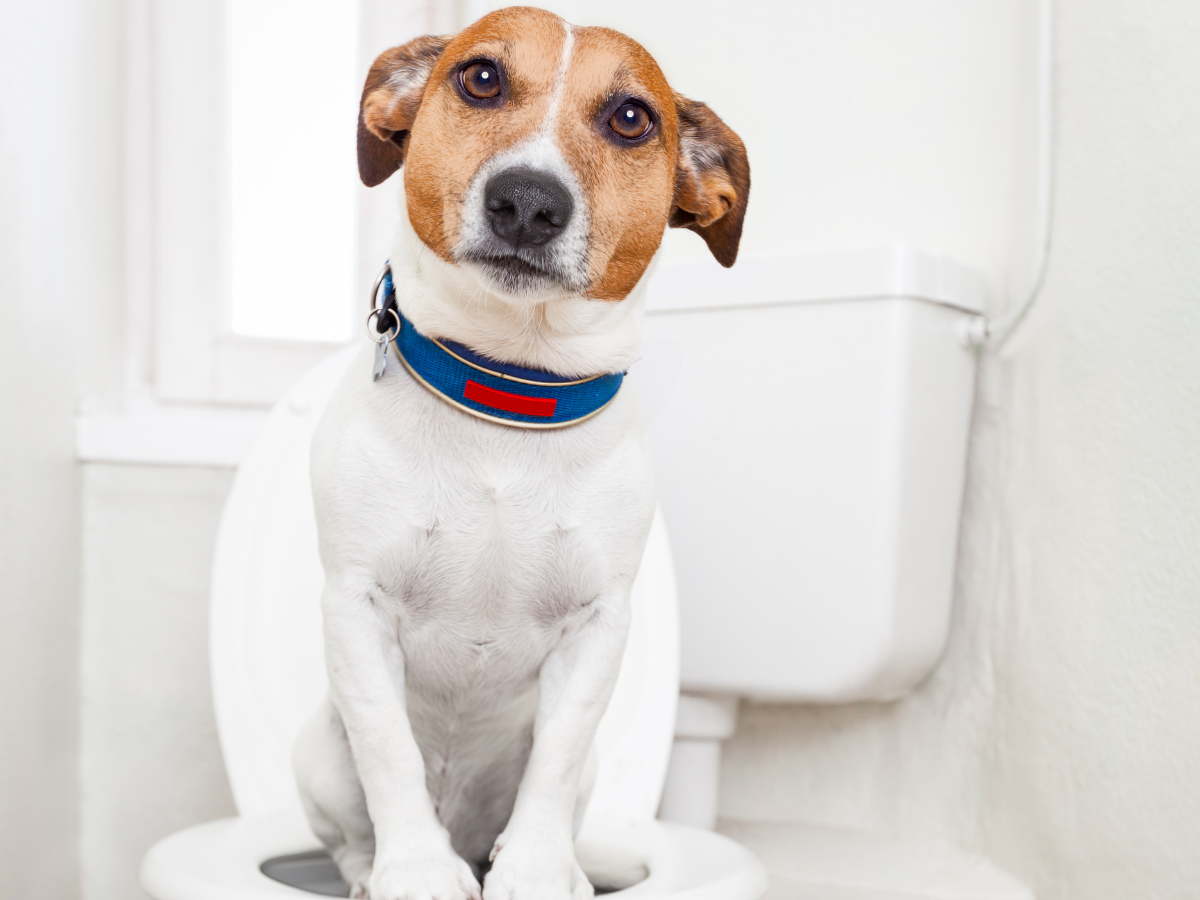
Should I consult a veterinarian?
It is important to consult a veterinarian if your dog has more than one or two loose stools, or if you see traces of blood in them.
In the presence of hemorrhagic diarrhea, where the dog presents loose stools with blood, treatment must be immediate and appropriate. This condition may indicate a serious condition such as colitis, parvoviral infection, or poisoning.
Treatment for bloody diarrhea may include intravenous fluids to prevent dehydration, medications to control pain and inflammation, and antibiotics if a bacterial infection is suspected.
A professional examination should also be considered if the diarrhea is accompanied by vomiting, anorexia, and/or lethargy. Any diarrhea that persists for more than 48 hours should definitely be treated by a veterinarian.
As you might expect, the solution to your dog's diarrhea depends largely on its cause. Therefore, you'll need to address the source to be successful.
In any case, here are some things you can try to relieve the first symptoms of diarrhea in your dog.
What can I give my dog with diarrhea?

If your dog or puppy won't eat and has diarrhea, give their digestive system a rest for a day before trying the natural tips and treatments below. Make sure they drink at least some water during this time.
What food for a dog with diarrhea? How to stop diarrhea naturally?
Here's what to feed a dog with diarrhea:
- Pumpkin puree : This is a good food to provide in case of diarrhea. Since it contains a lot of fiber, it helps the digestive system function properly. However, to reap the full benefits of pumpkin puree as a natural remedy for diarrhea in dogs, you should not add more than 1 to 4 tablespoons to your dog's regular meal.
- Homemade Food : A meal of cooked rice and chicken is easily digestible for your dog and tastes good, which will encourage him to eat. In fact, give him a drink of the rice cooking water for added benefits.
- Small Meals : Feed your dog small meals frequently throughout the day. This will make it easier for him to digest.
- Natural Alternatives for Dog Diarrhea : As mentioned earlier, probiotics could also be a very useful natural treatment for diarrhea in dogs.
Check out our article The Best Foods and Supplements to Combat These 10 Common Pet Health Problems for more ideas on foods to provide as a natural remedy for your dog during diarrhea episodes (slippery elm, cooked egg, etc.).
Natural product for your dog
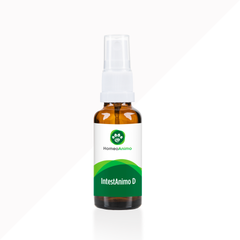 HomeoAnimo™ suggests this natural alternative if your dog suffers from diarrhea.
HomeoAnimo™ suggests this natural alternative if your dog suffers from diarrhea.
IntestAnimo D is an easy-to-administer natural product that promotes your dog's digestive balance.
It is therefore an excellent choice in case of loose and/or liquid stools.
Watch our video:
Conclusion
Although it's a rather unpleasant subject, diarrhea will be a factor in your dog's life at some point. The natural remedies mentioned in this article can make a difference!
Although most of the time they are not very serious, it is still very important to keep an eye open to determine the cause because in some cases, rarer but possible, they can be the manifestation of a very serious condition.
If you're concerned that your pet may be suffering from a health issue, our Free Pet Health Referral can help. In addition to receiving advice and recommendations from our Natural Health Advisors, they'll also guide you through the products and treatment options that best suit your pet's health needs.
I wish you success in relieving your dog's diarrhea and hope you avoid some damage!



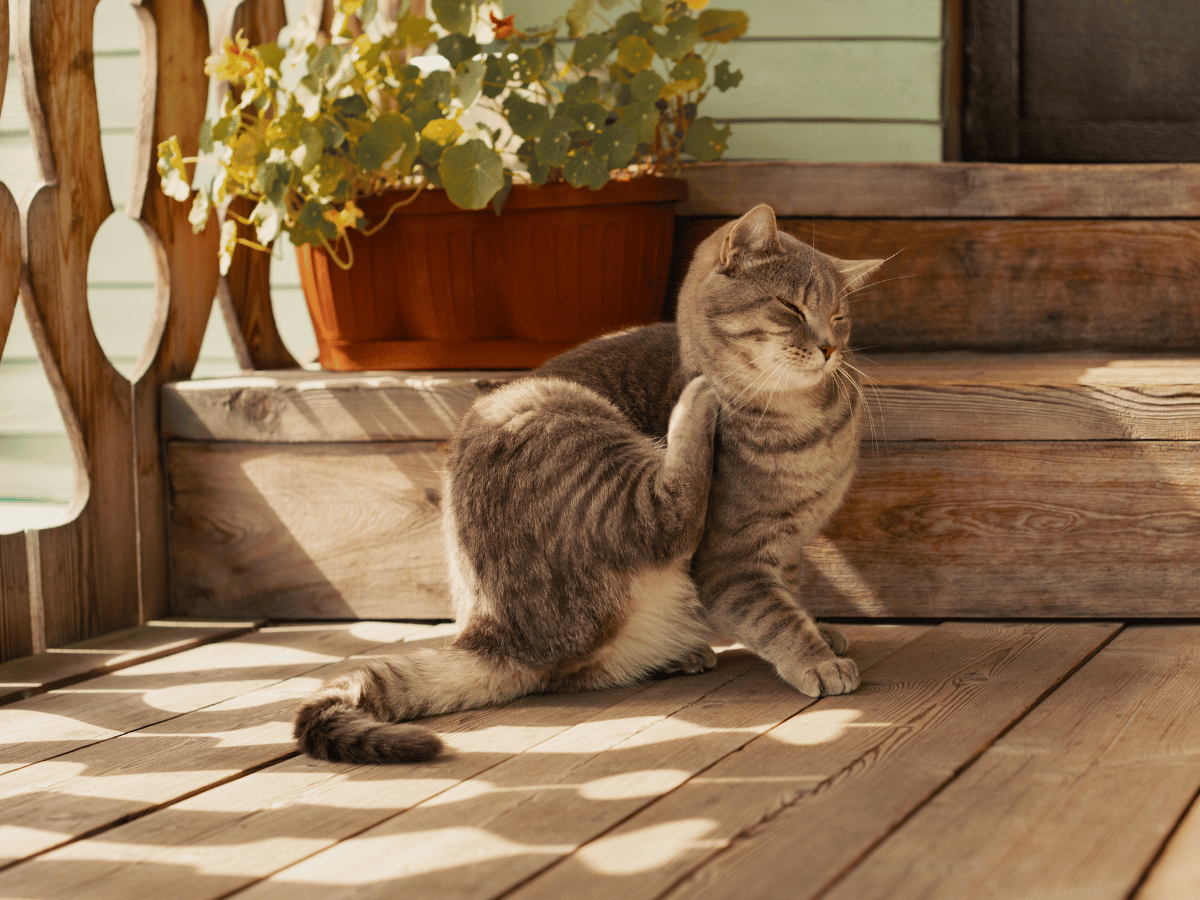



















4 comments
Merci Magali de nous avoir contactés au sujet de votre chien. Je vous écris en privé pour pouvoir vous aider au mieux :)
HomeoAnimo.com
HomeoAnimo
Mon chien a toujour la diaree les veterinaire piqure anti imflamatoire plus antibiotique cela dure quelque jour et ca revient es qu il y aurai un traitement autre j ai tout essayé cordialement cemiola magali
Cemiola magali
Bonjour Mme Rahim, Merci de nous contacter pour votre chienne! Il nous fera plaisir de vous aider et votre chienne, nous vous envoyons à l’instant un email pour discuter plus en profondeur de sa situation et santé. À bientôt! L’Équipe de Homeoanimo
Homeoanimo
Ma chienne à une forte diarrhée, que puis je lui donner en homéopathie merci
Bernadette Rahim
Leave a comment
This site is protected by hCaptcha and the hCaptcha Privacy Policy and Terms of Service apply.